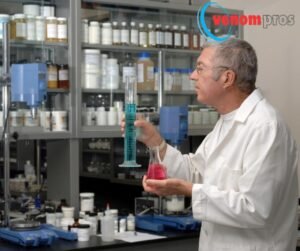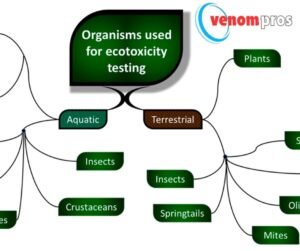
Nutritional Toxicologist
In a world where food is central to our lives, ensuring that what we eat is safe and nutritious is paramount. This is where food and nutritional toxicologists come into play. These professionals are vital in assessing and managing the risks associated with food consumption, helping to protect public health from potential hazards in our diet.
Who is a Food and Nutritional Toxicologist?
A food and nutritional toxicologist is a specialized scientist who studies the effects of chemicals, both natural and synthetic, in our food. Their primary focus is on identifying toxic substances in food, understanding their effects on the human body, and determining safe levels of exposure. These professionals work at the intersection of food science, nutrition, and toxicology, applying their expertise to ensure the safety and quality of our food supply.

The Role of a Food and Nutritional Toxicologist
Risk Assessment: One of the primary responsibilities of a food and nutritional toxicologist is conducting risk assessments. This involves evaluating the potential health risks posed by chemical substances found in food, including additives, contaminants, pesticides, and naturally occurring toxins. They determine the dose-response relationship, establish safe exposure levels, and provide guidelines for regulatory bodies.
Research and Development: Food and nutritional toxicologists are actively involved in research to identify new food safety risks. They conduct experiments, analyze data, and contribute to scientific literature on toxic substances in food. Their research helps develop safer food processing techniques, better food preservation methods, and improved regulatory standards.
Regulatory Compliance: These professionals work closely with governmental and international agencies to ensure that food products comply with safety standards. They help develop regulations and guidelines for permissible levels of various substances in food. Food and nutritional toxicologists play a key role in setting maximum residue limits (MRLs) for pesticides, food additives, and contaminants.
Consumer Protection: By identifying and mitigating risks, food and nutritional toxicologists protect consumers from potential harm. They monitor food products for contamination, assess the safety of novel foods, and evaluate the risks associated with dietary supplements. Their work helps prevent foodborne illnesses, allergic reactions, and long-term health effects from exposure to harmful substances.
Public Education and Communication: In addition to their technical roles, food and nutritional toxicologists often engage in public education. They communicate complex scientific information to the public, policymakers, and other stakeholders, helping them understand food safety issues. By making science accessible, they contribute to informed decision-making and promote healthier food choices.
Challenges in the Field
The field of food and nutritional toxicology is not without its challenges. One significant challenge is the constant emergence of new chemicals and food products that need to be evaluated for safety. Additionally, the globalization of the food supply chain increases the complexity of monitoring and regulating food safety across different countries with varying standards.
Another challenge is balancing the need for food innovation with safety concerns. As the food industry develops new products and technologies, toxicologists must ensure that these advancements do not compromise consumer health.

Conclusion
Food and nutritional toxicologists are crucial in safeguarding public health. Their expertise ensures that our food is safe, nutritious, and free from harmful substances. As our food system continues to evolve, the role of these professionals will only become more vital, ensuring that the foods we enjoy contribute to our well-being rather than pose a risk to our health.
Career Path and Educational Requirements
Becoming a food and nutritional toxicologist requires a strong foundation in the sciences, particularly in biology, chemistry, and toxicology. Here is a typical pathway to entering this field:
Undergraduate Education: Most aspiring food and nutritional toxicologists begin with a bachelor’s degree in a relevant field, such as biology, chemistry, biochemistry, or food science. Coursework in toxicology, nutrition, microbiology, and organic chemistry is highly beneficial.
Graduate Education: While a bachelor’s degree might be sufficient for some entry-level positions, most professionals in this field pursue a master’s or doctoral degree in toxicology, food science, or a related discipline. Graduate programs often include advanced coursework in toxicology, risk assessment, epidemiology, and research methodology, as well as opportunities for hands-on research.
Specialization and Certification: After completing their formal education, many food and nutritional toxicologists choose to specialize in specific areas such as food safety, nutritional toxicology, or environmental toxicology. Certification from professional organizations, such as the American Board of Toxicology (ABT), can enhance credibility and career prospects.
Experience and Continuing Education: Gaining practical experience through internships, research assistantships, or entry-level positions is crucial. Continuous education is also important in this ever-evolving field, where staying updated with the latest scientific advancements and regulatory changes is essential.

Career Opportunities and Work Environments
Food and nutritional toxicologists find career opportunities in a variety of settings:
Government Agencies: Many toxicologists work for government bodies like the Food and Drug Administration (FDA), the Environmental Protection Agency (EPA), or equivalent organizations worldwide. They play a key role in developing and enforcing food safety regulations, conducting research, and assessing the risks of food contaminants.
Private Industry: The food and beverage industry, pharmaceutical companies, and agricultural firms employ toxicologists to ensure that their products are safe for consumption. These professionals are involved in product development, quality control, and compliance with regulatory standards.
Research Institutions and Academia: Some toxicologists work in academic or research institutions, where they conduct studies on the effects of various substances on human health. They may also teach and mentor the next generation of scientists, contributing to the advancement of the field through academic research.
Consulting: Experienced toxicologists may work as consultants, providing expertise to companies, regulatory agencies, and legal teams. They offer guidance on risk assessments, regulatory compliance, and crisis management in cases of food safety incidents.

Emerging Trends and the Future of Food and Nutritional Toxicology
The field of food and nutritional toxicology is evolving rapidly, driven by technological advancements, changing consumer preferences, and global challenges such as climate change and food security.
Also read this;>Deadly Elixirs: How Venom Works in the Animal Kingdom
Also read this;>Candy Crush Saga: The Sweet Success Story of Mobile Gaming






